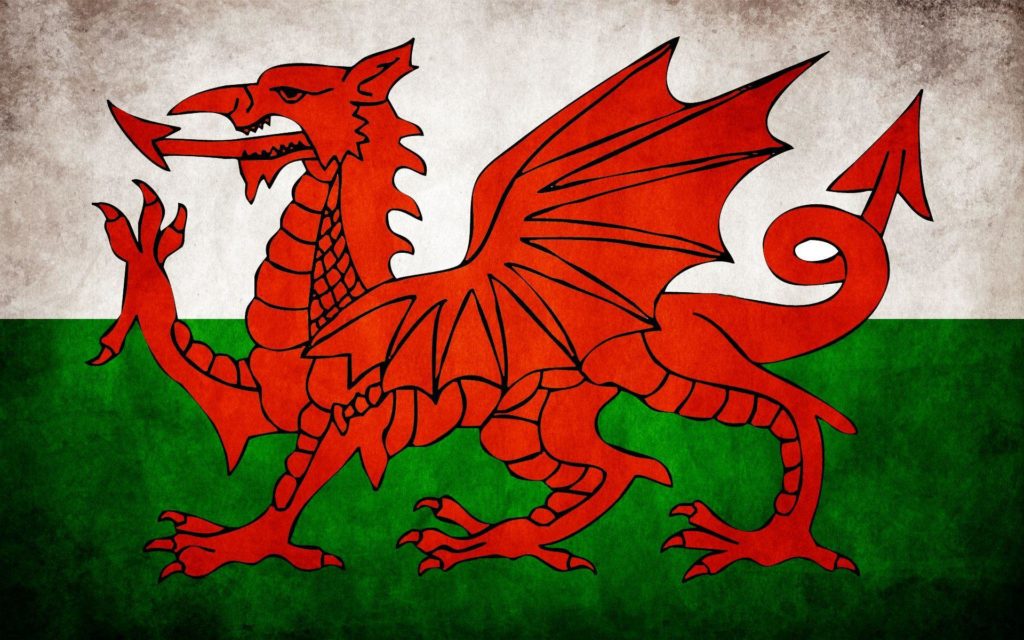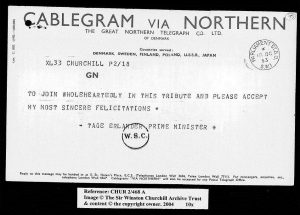
Finest Hour 193
Valiant Ancient Britons

December 30, 2021
Finest Hour 193, Third Quarter 2021
Page 50
In The Birth of Britain, the first volume of A History of the English-Speaking Peoples, Winston Churchill writes about the conquest of Wales by King Edward I and what this development meant for the future of Britain.
For an analysis of Churchill’s writings about Wales in A History of the English-Speaking Peoples, see the article by Prof. Paul O’Leary on the website of the International Churchill Society: www.winstonchurchill.org
In their fatal preoccupation with their possessions in France, the English kings had neglected the work of extending their rule within the Island of Great Britain. There had been fitful interference both in Wales and Scotland, but the task of keeping the frontiers safe had fallen mainly upon the shoulders of the local Marcher lords….Edward I was the first of the English kings to put the whole weight of the Crown’s resources behind the effort of national expansion in the West and North, and to him is due the conquest of the independent areas of Wales and the securing of the Western frontier.
He took the first great step towards the unification of the Island. He sought to conquer where the Romans, the Saxons, and the Normans all in their turn had failed.

2025 International Churchill Conference
The mountain fastnesses of Wales nursed a hardy and unsubdued race which, under the grandson of the great Llewellyn, had in the previous reign [of Henry III] once again made a deep dint upon the politics of England. Edward, as his father’s lieutenant, had experience of the Welsh. He had encountered them in war, with questionable success. At the same time he had seen, with disapproving eye, the truculence of the barons of the Welsh Marches, the Mortimers, the Bohuns, and in the South the Clares, with the Gloucester Estates, who exploited their military privileges against the interests alike of the Welsh and English people.
All assertions of Welsh independence were a vexation to Edward; but scarcely less obnoxious was a system of guarding the frontiers of England by a confederacy of robber barons who had more than once presumed to challenge the authority of the Crown. He resolved, in the name of justice and progress, to subdue the unconquered refuge of petty princes and wild mountaineers in which barbaric freedom had dwelt since remote antiquity, and at the same time to curb the privileges of the Marcher lords.
Edward I, utilising all the local resources which the barons of the Welsh Marches had developed in the chronic strife of many generations, conquered Wales in several years of persistent warfare, coldly and carefully devised, by land and sea. The forces he employed were mainly Welsh levies in his pay, reinforced by regular troops from Gascony and by one of the last appearances of the feudal levy; but above all it was by the terror of winter campaigns that he broke the power of the valiant Ancient Britons.
By Edward’s Statute of Wales the independent principality came to an end. The land of Llewellyn’s Wales was transferred entirely to the King’s dominions and organised into the shires of Anglesey, Carnarvon, Merioneth, Cardigan and Carmarthen. The King’s son Edward, born in Carnarvon, was proclaimed the first English Prince of Wales.
The Welsh wars of Edward reveal to us the process by which the military system of England was transformed from the age-long Saxon and feudal basis of occasional service to that of paid regular troops….In the Welsh wars both systems are seen simultaneously at work, but the old is fading. Instead of liege service, Governments now required trustworthy mercenaries, and for this purpose money was the solvent.
Subscribe
WANT MORE?
Get the Churchill Bulletin delivered to your inbox once a month.





